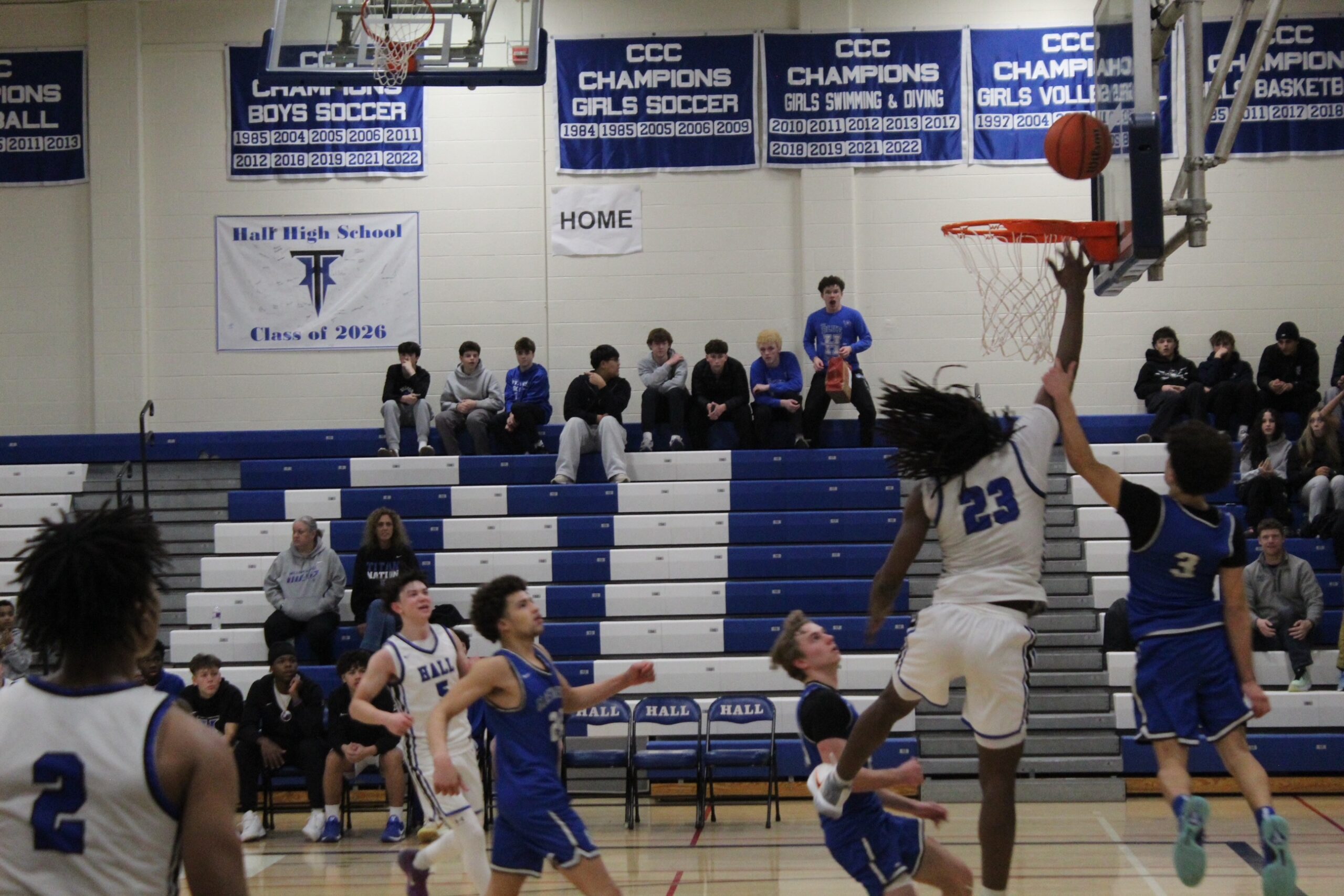College Bound: Should You Reach for It?

Audio By Carbonatix

Photo credit: Ronni Newton (we-ha.com file photo)
We-Ha.com will be publishing a series of essays/blogs/reflections on the issue of going to college – primarily a set of thoughts and musings, along with some practical advice, intended to support students and parents as they embark on this journey. While many of our readers are experts in this topic, many others are less knowledgeable and have little outside support. We hope this is helpful to all readers as they go through the various stages of getting into and getting something out of college.

Adrienne Leinwand Maslin. Courtesy photo
By Adrienne Leinwand Maslin
As part of my interest in student success in college I have been responding to some select questions on Quora, a question and answer website. I enjoy sharing my knowledge of higher education with others who might benefit from it and who may, as a result, have an easier time negotiating the various aspects of applying to and achieving success in college. From time to time I see questions about “reach” schools; whether it’s worth it to even apply or how many is reasonable for a student to apply to. Let’s take a look at reach schools and how to put your best foot forward.
In developing a list of colleges to apply to most students are told to consider “safety” schools, those where you have about a 70% chance or greater of being accepted, “match” or “target” schools, those where your chance of being accepted is between approximately 40% and 70%, and “reach” schools, where your chance for admission is less than 40%. Most Ivy League schools are even less reachable and your chance for admission is less than 15%. Many college consultants believe that Ivy League colleges should be considered reach schools for all applicants.
Some students ask why they should even bother applying to reach schools. If their chances are so slim, what’s the point? One reason to apply is because in your efforts to produce a superior application for your reach school, you might then take elements of that application for use when applying to match or safety schools. In other words, all of your applications may be, overall, stronger.
And the other reason? Because you never know what will happen. Maybe you will get in! Admissions decisions are based on more than grades and SAT/ACT scores although these are the most important factors. But perhaps you hit a home run with your essay. It was creative or especially insightful. It suggested to the admissions committee that you are more than your grades reflect. Perhaps your letters of recommendation provided information about your leadership skills that you didn’t amplify in your own portions of the application. As I’ve explained in previous articles, admissions decisions are holistic and many factors go into determining which students are admitted.
You already know that college admissions officers look closely at grades and possibly standardized test scores if they are required or you choose to submit them if optional. These are more objective measures of a student’s abilities although, even there, some subjectivity is involved. For example, also considered by admissions staff is the nature of the high school – is the high school generally known for its academic rigor? – and the nature of the courses you took at that high school. Did you take honors and AP classes? Were you in an International Baccalaureate program? So it’s possible you didn’t get all “As” or even many “As” but you were in a very rigorous program. That counts!
Many students attend high schools that do not offer many AP classes making it hard for these students to take a highly rigorous program. While that would not be your situation if you attend Conard or Hall high schools, it may be the case for others who read this article. Perhaps, however, you took classes at a local college or university while also a high school student. How well did you do in those classes? Were you able to maintain a high GPA from high school and participate in extracurriculars while taking a college course? That counts too!
Of great importance is the personal statement or essay. This is an opportunity to really let the admissions staff know who you are as a person. Of course, the essay should be well-written with correct punctuation and no spelling errors. But equally important is the content. I looked at some samples of real essays that students wrote for their college applications on the website College Essay Guy ( https://www.collegeessayguy.com/) and aside from being very well-written they had something else in common: they were all personal. I don’t mean the writers revealed their most deeply held secrets but they revealed something of their backgrounds or beliefs that was important. For example, if you are of Ukrainian or Russian descent, and the war between the two countries affects you in some personal ways, helping admissions staff understand your thoughts and feelings in an essay or personal statement might be very worthwhile. But, if not, this is not the time to express your general opinion on the outcome or discuss military strategy unless an essay prompt specifically invites you to comment about world events.
Let’s take a look at other criteria such as extracurricular activities. A multitude of extracurriculars should never come at the expense of grades. Nor do I personally believe that one should have to spend a lot of money to ensure a long list of unusual activities to submit to a college. I like the approach taken by Lafayette College in Easton, PA:
Lafayette has chosen to focus on your top six activities listed in the Common App. Why six? We know that it’s hard to do 10 activities (the number of spaces on the Common App in the activities section) really well, in addition to maintaining a fine academic record and robust personal life. So rather than focus on how many activities you can list, focus on those activities that have the most meaning to you.
We always recommend students list their activities in order of what you are most passionate about and/or spend the most time on at the top of the list, rather than chronologically by when you began the activity. Don’t have six activities to list? That’s fine. Be proud of what you as an individual can do. Remember that part-time work and caring for your family and household is an activity, too (https://admissions.lafayette.edu/apply/).
Last, there are letters of recommendation. The College Board provides excellent advice on handling this aspect of the application process. This includes:
- Read each of your college applications carefully. Schools often ask for letters of recommendation from a specific person, such as a core subject teacher, specific subject teacher, or school counselor.
- Get advice from teachers, counselors, and family members on who would be best to write your recommendation letters.
- Be sure to select a current teacher or one from your junior year, preferably one who knows you well. Don’t choose teachers you had several years ago, since colleges want to know who you are and what you are like now.
- Teachers who know you outside of the classroom are a good choice. Consider a teacher who led a club you were in.
- If requested by the college, you can also think about other adults who know you well. A coach, employer, or club adviser can say a lot about your skills and character. Ask your admissions officer if it is okay to submit recommendations beyond what is required by the college.
- Above all else, choose someone who will be enthusiastic about writing your letter.
- If you’re unsure about asking someone in particular, politely ask if he or she feels comfortable recommending you. That’s a good way to avoid letters that sound weak or forced. (https://bigfuture.collegeboard.org/plan-for-college/apply-to-college/application-process/how-to-get-a-great-letter-of-recommendation)
When you are considering which teachers to ask to provide a recommendation letter, think about which teachers have something very specific to describe about your abilities, scholarship, passion, drive or some other characteristic that is important to success in college. Perhaps you failed a test but showed your teacher how committed you were to mastering the material and the effort you put into doing so which resulted in receiving a top grade in the course. This is something worth highlighting in a letter of recommendation. Your cross-country coach might write about your sportsmanship when you stopped mid-race to help a competitor from another school who twisted an ankle and fell to the ground. A robotics club advisor might be able to describe your thought process as you solved a particularly thorny problem while building your robot. These are specific things that make you stand out.
Now, one caveat about about applying to reach schools: College applications take time and money. You do not want to waste either by applying to a school where you have no chance of getting in. If your grades are not even close to the range of most admitted students, it is probably not worth applying despite your leadership skills or your talents as a writer.
So choose reach schools carefully. If your grades are below but near those of most admitted students, and your SAT/ACT scores – if you take and submit them – are below but within range of most admitted students, then it might be worth a shot. But consider other factors as well. Is the college in a desirable location? Do you get a good vibe when visiting the campus? Does it have a broad range of majors? Consider what is important to you besides the prestige of the school.
So, what do you know! You were accepted to one of your reach schools! Congratulations! Your parents, grandparents, aunts and uncles, and teachers have phoned, texted, and sent you cards! Maybe some of those cards even contained a little extra spending money! You’ve been taken to dinner at your favorite restaurant. Your friends have given you the “way to go!” slap on the back. You’ve put your new yard sign that says, “XXXXX University Class of 2029” on the front lawn and the neighbors are suitably impressed. And you have submitted your $500 enrollment deposit to hold your spot. And now, you are having feelings of doubt. “Why did Penn accept me?” “Did Middlebury really mean to accept me?” “What if Wesleyan accidentally put my name in the wrong group and I wasn’t supposed to get in? Can I really handle the work? Am I going to flunk out after the first semester?”
Many students start to feel a bit of anxiety about their ability to handle the workload in college and those feelings are often compounded when you have been granted admission to, and decide to attend, one of your reach schools. You begin to doubt your own worth and your own skills and you fear that you may be “found out.” That someone or something will blow your cover. We call this “imposter syndrome.” Perhaps what I have to say next will set your mind at ease.
Just about every institution of higher education in the United States has offices that collect and analyze data related to the college and the college-going population. The professionals in these offices provide college administrators, faculty, and staff the data they need to make decisions. We call it “data-driven decision making” and it helps faculty and staff, along with enrollment management and admissions personnel, develop and implement policies and practices that address a whole host of issues. The issues identified below are only a small fraction of those that might be considered by admissions staff.
- What kind of students do we want to enroll? More adults? More students with GPAs of 3.0 or higher? More Black students?
- How can we increase our applicant pool of these types of students? Where should we look to attract these students?
- What methods of communication would these students pay attention to?
- What are the characteristics of students who drop out or transfer prior to completion?
- What are the characteristics of students who graduate in four, five, or six years?
- What SAT/ACT scores do the students have who, after completing 30 credits, have a GPA of (3.5, 3.0, 2.5, 2.0)?
There are so many questions that can be addressed it is mind-boggling. But, with all of the information that is collected, when a student applies to a college the admissions staff has a pretty good idea of whether that student will succeed. So don’t overthink it. Don’t question yourself or your abilities. You were accepted because you have shown you can handle the work and be successful. The staff have faith in you and you have to have faith in yourself. So get online and order that new college hoodie and enjoy your last semester of high school. You’re all set for an exciting future at college.
Adrienne Leinwand Maslin recently retired from a 45-year career in higher education administration. She has worked at public and private institutions, urban and rural, large and small, and two-year and four-year, and is Dean Emerita at Middlesex Community College. She has held positions in admissions, affirmative action, president’s office, human resources, academic affairs, and student affairs. Maslin has a BA from the University of Vermont, an MEd from Boston University, and a PhD from the University of Oregon. She is presently creating a TV/web-based series on life skills and social issues for 9-12 year olds believing that the more familiar youngsters are with important social issues the easier their transition to college and adulthood will be. Information about this series as well as contact information can be found at www.shesroxanne.com.
Like what you see here? Click here to subscribe to We-Ha’s newsletter so you’ll always be in the know about what’s happening in West Hartford! Click the blue button below to become a supporter of We-Ha.com and our efforts to continue producing quality journalism.




Excellent advice & information.
This information is so valuable the reader should copy the information and refer to it periodically.
This will increase a student’s success in admission.
Sincerely,
James A. Johnson
http://www.JamesAJohnsonEsq.com